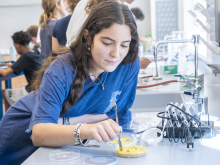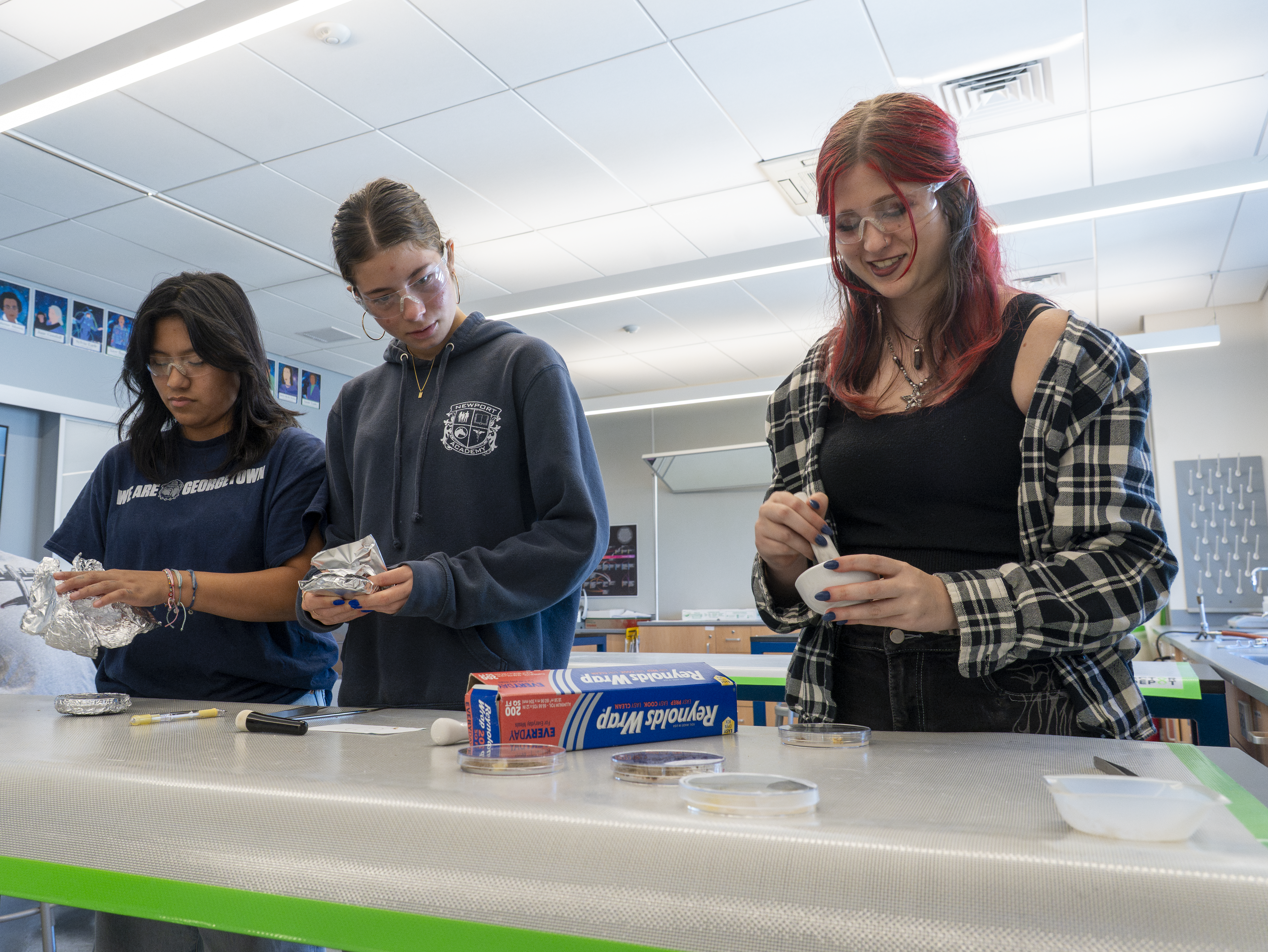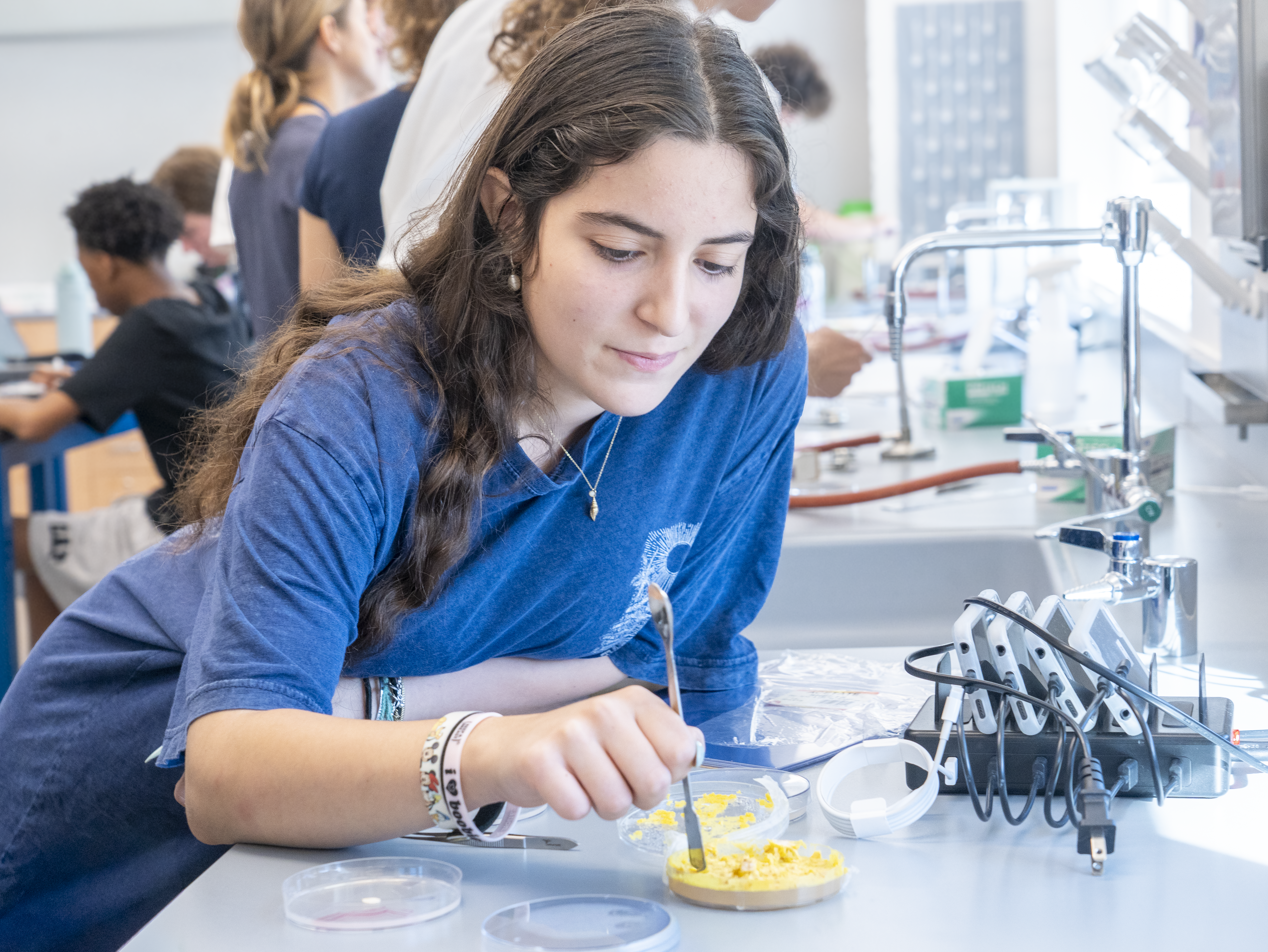

At first glance, it might not look like much: petri dishes containing yellow clumps, however this seemingly simple matter is a surprisingly complex unicellular organism that is known for its problem-solving skills. Keep reading to learn more about how Rachel’s Molecular and Cellular Biology class is studying these organisms to challenge our understanding of “intelligence.”
What if intelligence isn't limited to brains? That’s one question upper school students in Rachel’s Molecular and Cellular Biology course considered in their lab as part of a larger unit on the intricacies of the workings of the simplest of organisms.
Students worked with Physarum, a unicellular slime mold that is famous for its external memory. Despite having no nervous system, Physarum can display complex behaviors, such as determining an efficient path to a food source–challenging what we think and know about intelligence. For example, they can navigate through a plastic maze, by leaving behind a slime residue, to find oats that are placed at the end of the path.
To wrap up their unit on the characteristics and classification of single-celled organisms, students designed and executed their own experiments on Physarum. They began by digging into existing scientific research and then crafting clear rationales for their own hypotheses. They used this information to build open-ended labs to test how the Physarum responds to different conditions. One group compared two food sources to see which one the Physarum prefers, while another tested how the organisms react to salt.
"We were really excited about this project because we thought it was cool that slime molds are able to navigate and have a memory of where they have been without having any neurons. We also really enjoyed being able to design and conduct this experiment on our own, and be able to watch our slime molds grow," Julia ’27 and Andrea ’27 shared after collecting their results.
After completing their experiments, students presented their findings to the class—analyzing what worked, what didn’t, and the relatability of their data. Through research, experimentation, and reflection, they deepened their understanding of cellular biology, while also raising new questions about cognition, adaptability, and what it means to be “intelligent.”
